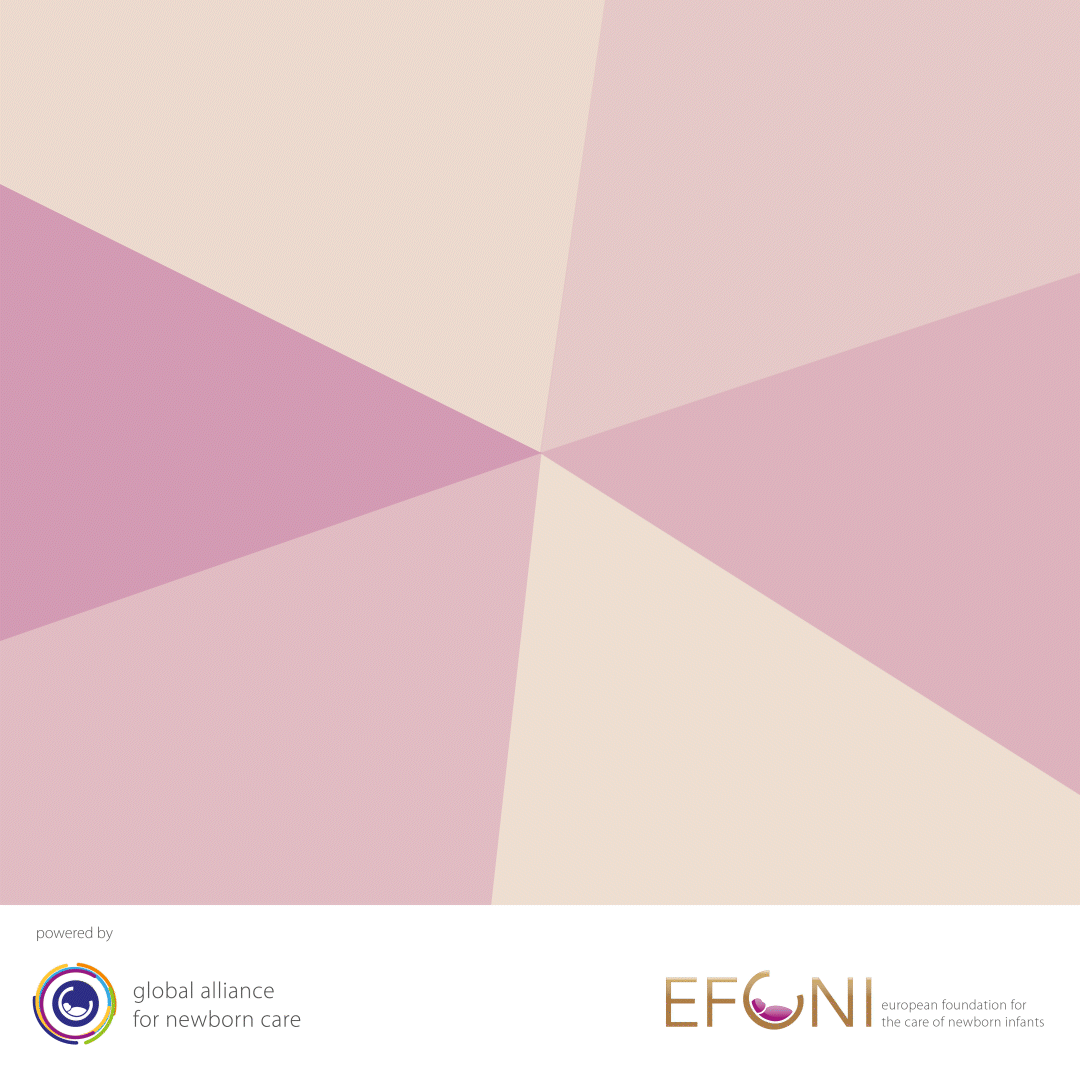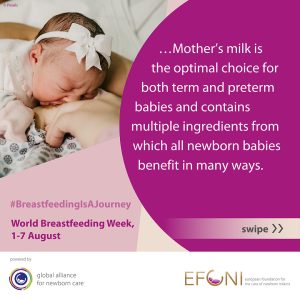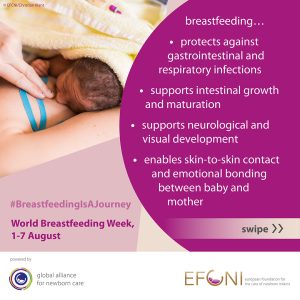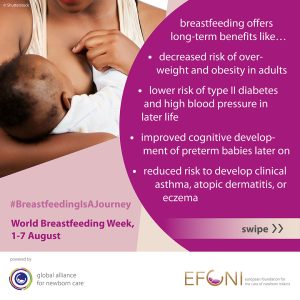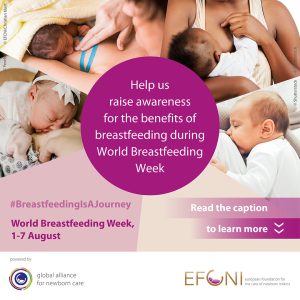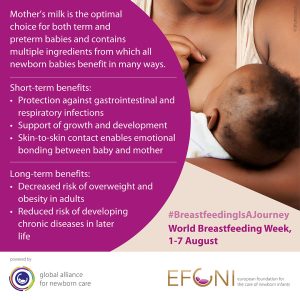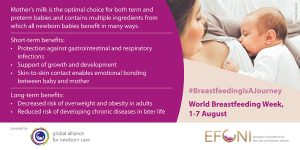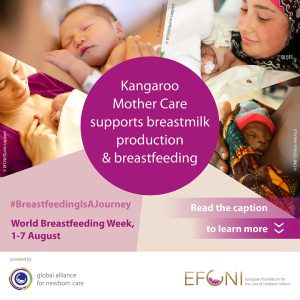World Breastfeeding Week
World Breastfeeding Week (WBW) is a campaign organised by the World Alliance for Breastfeeding Action (WABA). It is considered one of the largest joint campaigns of its kind by international organisations such as WHO and Unicef to promote the benefits of breastfeeding. WBW has been celebrated annually in around 120 countries since 1991. Since 2016, WBW has also been aligned with the United Nation’s Sustainable Development Goals (SDGs). In most countries, WBW is celebrated from 1 to 7 August each year. However, some countries celebrate in May, October or November. If you would like to get more involved in the WABA political campaign, please visit their website at www.worldbreastfeedingweek.org
For the 10th time, EFCNI is actively supporting and participating in World Breastfeeding Week with their own campaign. This year’s WABA campaign theme is “Closing the Gap – Breastfeeding Support for All”. While EFCNI strongly supports breastfeeding and wants to help increase the number of newborns who benefit from breastmilk, it is particularly important to us to represent and support the most vulnerable group of newborns: preterm babies and newborns requiring intensive medical care.
Challenges of breastfeeding a preterm or hospitalised baby
Preterm (and hospitalised) newborns benefit even more from breastfeeding than their full-term peers. Yet they are less likely to be breastfed. There are many different reasons for this gap. In the first few weeks, preterm babies are often physically unable to breastfeed. For example, they may not be able to coordinate sucking and swallowing, they may be too weak, or their digestive system may still be immature. Another potential barrier for mothers of preterm babies can be a lack of adequate information and support. They often do not know how to provide breast milk for their babies. Emotional pressure, whether from family, society or self, can be another major barrier.
Our aim, therefore, is to raise awareness of the special situation that mothers of preterm and hospitalised newborns find themselves in when it comes to breastfeeding. Their approach to breastfeeding may be different and they may face different breastfeeding challenges than mothers of full-term babies.
We believe that #BreastfeedingIsAJourney and every mother should be encouraged to find the way that works best for her and her baby. Therefore, appropriate breastfeeding facilities must be established and maintained to protect, promote and support breastfeeding for all – in workplaces, communities, health facilities, the public, and especially in critical environments such as hospitals and neonatal units.
Campaign material 2024
We invite you to download the material and use it for your own social media messaging.
Please tag us @efcni and be sure to use #BreastfeedingIsAJourney and #WBW2024 to help us find and like your posts.
Poster
Social media graphics
Blog article
We are pleased to announce that we will be contributing to the BabyCare blog again on 1 August 2024. The article (German only) will be about creating a breastfeeding friendly environment to support breastfeeding for all so that every baby can have a good start in life, with a special focus on preterm and sick babies and their mothers.
As soon as the article is published, we will share the link with you here. Stay tuned.
Infographic – Do you know the benefits of breastfeeding?
Facebook & Instagram
Infographic – Kangaroo Mother Care (KMC) & Breastfeeding
Social media graphic 2024 – further languages
We kindly thank our partner parent organisations for their help and support in translating our World Breastfeeding Week material.
For more information on breastfeeding, please download our factsheet „Breastfeeding a preterm baby“, now available in English, German and Romanian:
Factsheet “Breastfeeding a preterm baby” (updated 2023)
Worldwide supporters
We warmly thank the following parent organisations for supporting this year’s World Breastfeeding Week initiative (in alphabetic order):

We warmly thank the following medical societies for supporting this year’s World Breastfeeding Week initiative (in alphabetic order):





